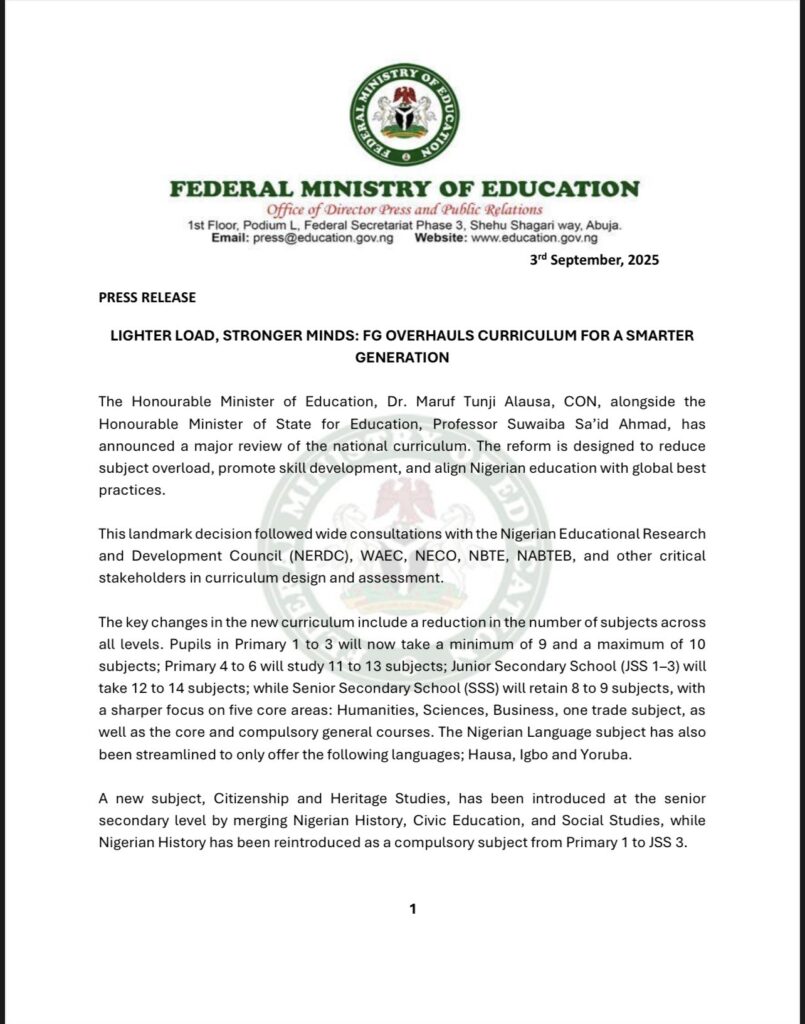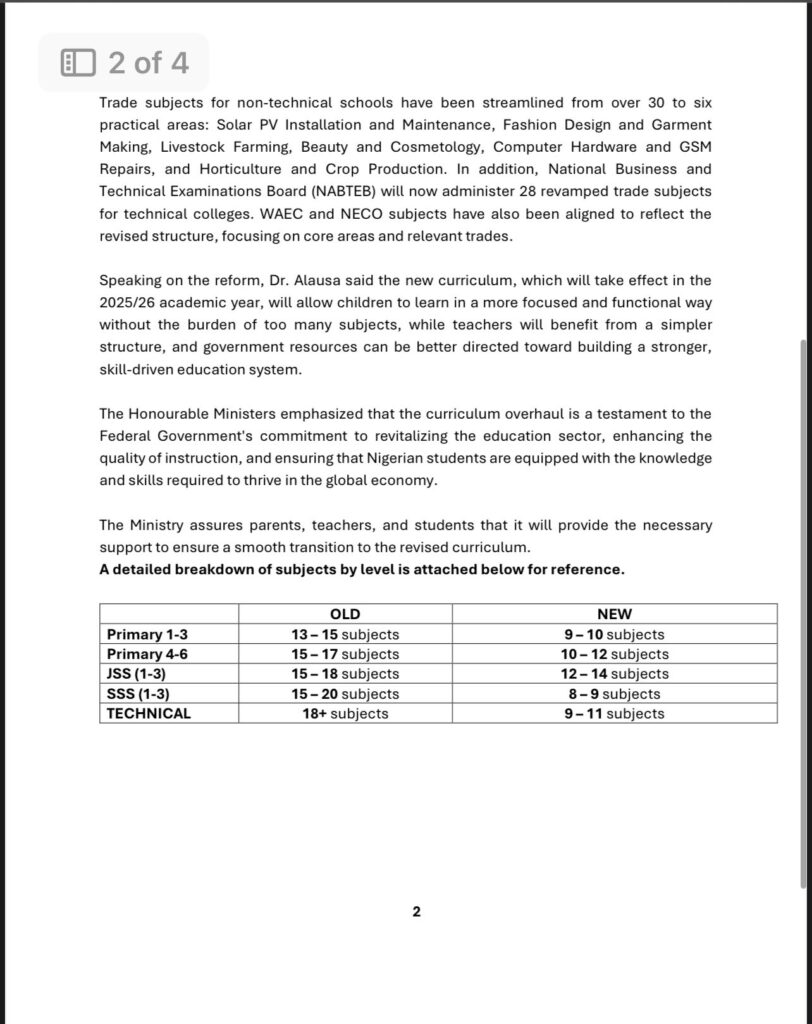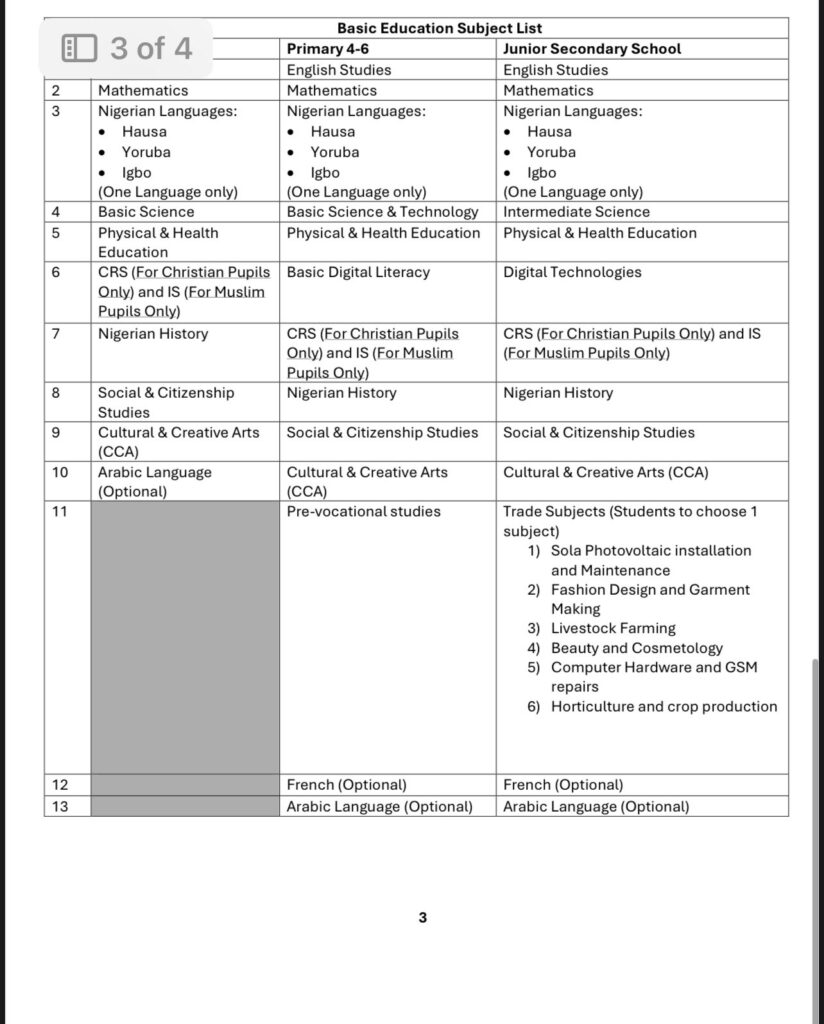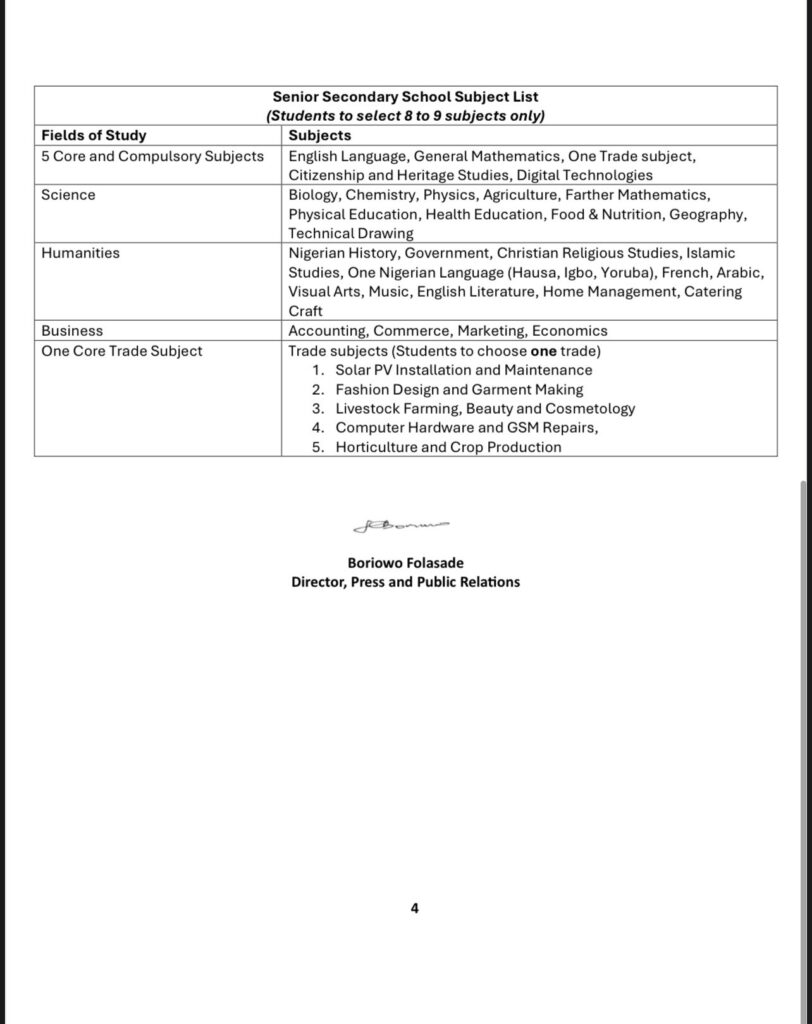The Federal Government has unveiled a major overhaul of the national curriculum, aimed at easing the burden of subject overload on pupils and students while aligning Nigeria’s education system with global best practices.
The reform was announced on Wednesday by the Minister of Education, Dr. Maruf Tunji Alausa, CON, alongside the Minister of State for Education, Professor Suwaiba Sa’id Ahmad, following extensive consultations with key stakeholders including the Nigerian Educational Research and Development Council (NERDC), WAEC, NECO, NBTE, and NABTEB.
Under the revised structure, pupils in Primary 1 to 3 will now take between 9 and 10 subjects, while those in Primary 4 to 6 will study between 11 and 13. Students in Junior Secondary School (JSS 1–3) will have 12 to 14 subjects, while Senior Secondary School (SSS) learners will take 8 to 9 subjects with emphasis on five core areas — Humanities, Sciences, Business, one trade subject, and compulsory general courses.
In a significant policy shift, the Federal Government has streamlined the Nigerian Language subject to only three major languages — Hausa, Igbo, and Yoruba.
Another major highlight is the introduction of a new subject, Citizenship and Heritage Studies, at the senior secondary level. The subject is a merger of Nigerian History, Civic Education, and Social Studies. Additionally, Nigerian History has been reintroduced as a compulsory subject from Primary 1 to JSS 3.
According to Dr. Alausa, the reform is designed to reduce the mental load on learners and strengthen skill-based education. “Our goal is to produce smarter, more innovative, and globally competitive young Nigerians. This is a bold step towards achieving that vision,” he said.
Education experts and stakeholders have welcomed the development, describing it as a long-overdue step towards improving learning outcomes in Nigeria’s schools.
See The Full Details Below:









